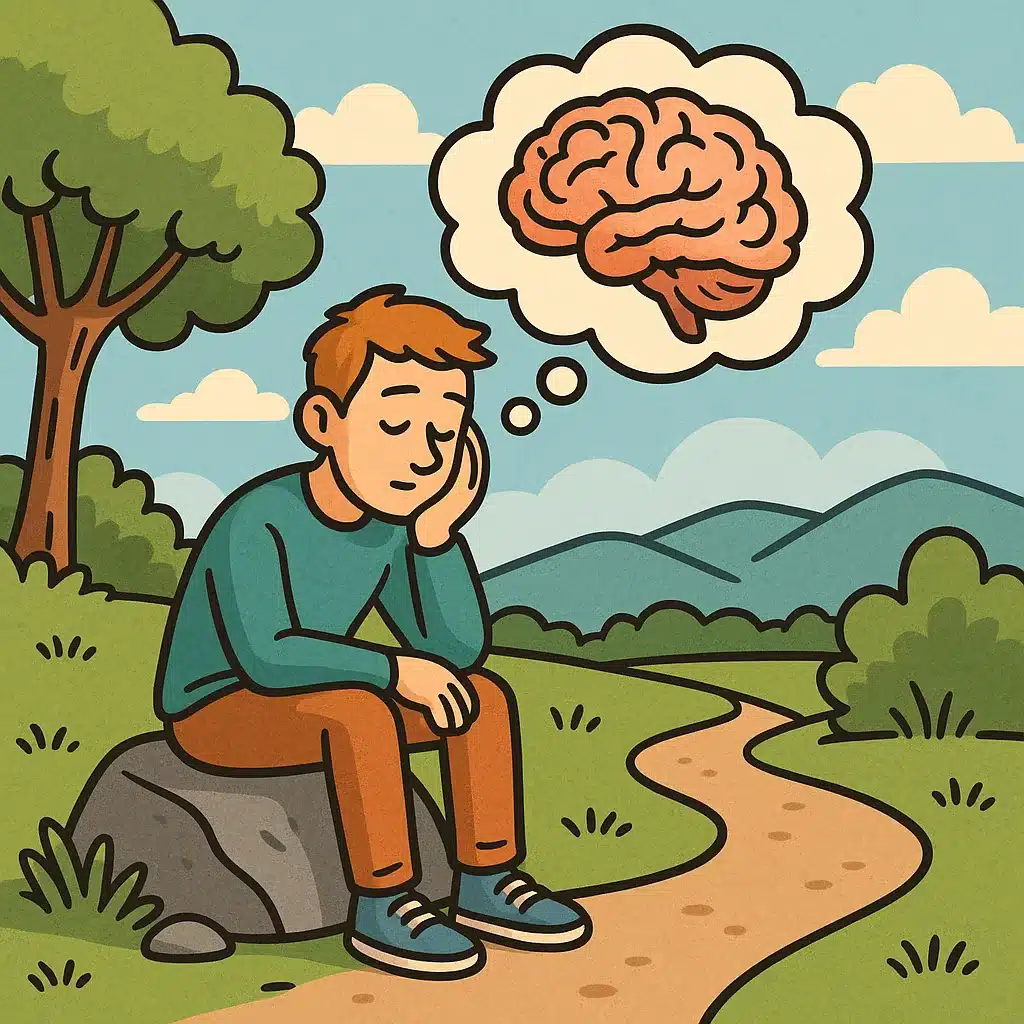In a world of nonstop digital chatter and remote overload, carving out time for solitude boosts cognitive clarity by helping professionals recharge, reflect, and sharpen focus. This emerging trend is transforming modern work culture.

Why Solitude Matters in Today’s Fast‑Paced Work Life
In a world of constant connectivity and workplace demands, intentional solitude is a powerful tool for mental health, creativity, and focus.
Solitude vs. Loneliness
Solitude, a voluntary choice to be alone, boosts well-being, unlike loneliness, an unwanted state linked to anxiety. Research in Frontiers in Psychology shows chosen solitude fosters self-reflection and emotional balance.
Well-Being and Mental Clarity
Just 15 minutes of daily solitude can reduce stress and enhance calm, per University of Rochester studies. This pause lowers cortisol, improving emotional regulation and clarity, vital for navigating high-pressure work.
Creativity and Insight
Solitude activates the brain’s default mode network, sparking daydreaming and creative problem-solving. Journal of Creative Behavior research highlights how alone time drives innovative ideas, offering a competitive edge in collaborative settings.
How Time for Solitude Boosts Cognitive Clarity
1. Cuts Through Cognitive Overload
In a world of constant notifications, solitude offers essential mental rest. Research shows silence promotes hippocampal growth, improving memory and emotional regulation. This reduces mental fatigue from multitasking, enhancing clarity in thought and decision-making.
2. Enhances Focus and Productivity
Solitude eliminates distractions, fostering deep focus ideal for tasks like writing or strategizing. Studies on “flow” show solitary work boosts immersion and efficiency, leading to higher-quality outcomes and increased productivity.
3. Enables Self-Reflection and Alignment
Solo time allows professionals to reflect on career and life goals, aligning actions with values. Psychological research links regular introspection to greater resilience and purpose, supporting long-term clarity and personal fulfillment.
Emerging Trends & Research Highlights
Positive Solitude in Popular Culture
“Positive solitude” is rising in public consciousness, with books, surveys, and even “solitude sheds” fostering the idea that alone time is essential—not indulgent.
Workplace Impacts: Loneliness vs. Solitude
While strategic solitude supports clarity, chronic loneliness at work leads to disengagement and reduced performance. Lonely workers are more likely to miss work or leave their jobs.
ADHD & Focus Disorders
Individuals with attention challenges may especially benefit from solitude. Structured alone time helps reduce overwhelm, sharpen focus, and build resilience.
Practical Guide: How to Build Solitude into Your Career Life
Craft Solitude Moments That Boost Clarity
- Micro‑breaks: Take 15–20 minutes alone each day—no devices, no noise.
- Mindful solo walks: Quiet reflection while moving boosts clarity.
Choose Intentional Activities
- Journaling or free writing: Process thoughts, emotions, career goals.
- Creative pursuits: Sketching, brainstorming, solo planning sessions.
Incorporate Digital Boundaries
- Avoid passive isolation by scrolling social media—it doesn’t count as solitude.
- Instead, set device‑free intervals—even if during lunch or a short walk.
Create Companionate Solitude
- Sit alone in a café, or read in a quiet corner—without conversation.
- You’re present with others but mentally inward—delivering low‑key solitude that still feels connected.
Solitude as Fuel for Career Growth
Strategic Leadership Time
Leaders who turn inward periodically can better strategize, empathize, and avoid burnout.
Career Planning Intervals
Use quiet time to evaluate progress, set goals, and determine next steps—free from external pressure.
Innovation Zones
Workers report innovation spikes when working alone on new initiatives—solitude lets original ideas emerge.
Striking the Right Balance: Social Connection & Solitude
It’s critical to pair solitude with healthy social bonds. Too much isolation (loneliness) undermines work engagement and well‑being. Balanced time alone and with others yields optimal clarity and emotional resilience.
How Time for Solitude Boosts Cognitive Clarity in Real Work Settings
Solitude—time alone to think without distractions—sharpens focus and boosts productivity across work settings. It allows workers to process ideas, solve problems, and recharge mentally.
Remote workers: Scheduling solo hours between meetings enhances productivity. Constant virtual calls can disrupt focus. A one-hour solo block lets a developer debug code or a marketer refine strategies, improving efficiency by minimizing distractions.
Hybrid teams: Solo in-office time helps employees recover from social fatigue. After collaborative meetings, a quiet 45-minute block in a focus room allows a project manager to process feedback and clarify plans, reducing stress and boosting output.
Creative professions: Writers, designers, and strategists need solitude for breakthrough work. A distraction-free morning lets a writer draft ideas or a designer explore concepts, fostering creativity and innovation.
Intentional solitude, whether through scheduled breaks or quiet spaces, helps workers achieve clearer thinking and better results.
Tips for Getting Started
- Schedule daily solitude windows—even 10–15 minutes.
- Use solitude for reflective tasks: journaling, ideation, planning.
- Limit devices: avoid screens, social media.
- Try companionate solitude, like being alone in a shared space intentionally.
- Track your clarity, stress, and focus levels over weeks to evaluate benefits.
Why This Trend Is Gaining Ground
- Culture is shifting to value introspection and balance, not just endless connection.
- Employers are recognizing the cost of loneliness while promoting mental health and quiet reflection.
- Individuals are actively seeking methods like digital detoxing, solo retreats, and structured quiet time.
Conclusion
Time for solitude boosts cognitive clarity, offering mental rest, sharper focus, greater creativity, and deeper self-awareness—key ingredients for career success. Research continues to affirm that intentional alone time is a powerful tool, not a liability. When balanced with healthy social connection, solitude becomes a strategic asset for working professionals. Give yourself permission to pause, reflect, and reconnect with your own mind. The clarity you gain could redefine your productivity and direction.
References
Thuy‑vy T. Nguyen & Netta Weinstein. The Benefits of Solitude (American Psychological Association, 2025). . nypost.com
Virginia Thomas. “Psychologist reveals 3 major benefits of being alone — despite the stigma.” The Conversation via New York Post, April 2025. nypost.com
Yingchen Liu & Haixin Jiang. “The Impact of Social Isolation on Subjective Cognitive Decline in Older Adults: A Study Based on Network Analysis and Longitudinal Mode.” arXiv preprint, June 2025. . arxiv.org






